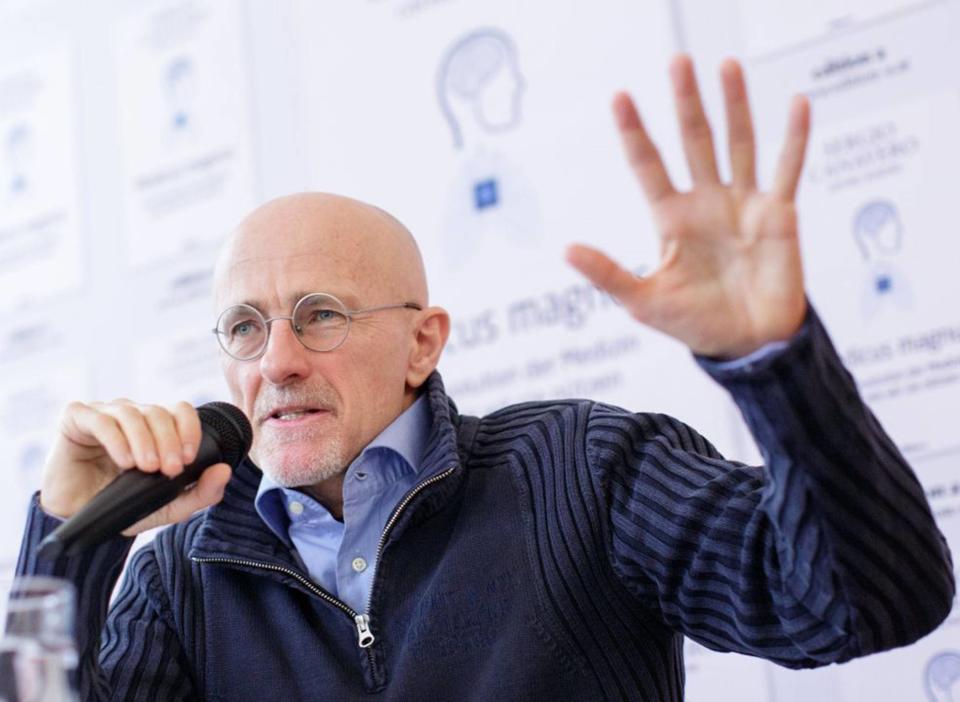Head transplant surgeon attacked by medical community after suggesting 'unethical and dangerous' operation is imminent

The medical community has strongly criticised the neurosurgeon who claims he is about to perform a head transplant, accusing his work of being morally wrong and possibly criminal.
Sergio Canavero, Director of the Turin Advanced Neuromodulation Group, has said that he has “successfully” performed the procedure on a corpse. The operation was carried out by a team led by Dr Xiaoping Ren of Harbin Medical University, China.
Professor Canavero said that he soon intends to do the transplant with two brain-dead patients. Once that is done, he will be able to try and perform the full 18-hour surgery on a living person, he has claimed.
But the medical community has reacted quickly to say that it thinks the surgery is both unethical and dangerous. It could cause horrific problems for the people who undergo it and it could endanger society more generally, many of the world’s leading experts have said.
Doctors have warned that if Professor Canavero goes ahead with the decision, it could damage respect for the medical industry, as well as bringing great harm to the patient.
“Indeed, attempting such a thing given the current state of the art would be nothing short of criminal, and as a neuroscientist, I would really quite like the general public to be reassured that neither I nor any of my colleagues think that beheading people for extremely long-shot experiments is acceptable,” said Jan Schnupp, professor of neuroscience at City University of Hong Kong. “It is not!”
As such, the project is almost certainly doomed to failure, experts said. But if it does, then it will be a horrifying experiment that could cause untold trauma to everyone involved, and success might be far worse than failure.
“Unless Canavero or Ren provide real evidence that they can perform a head, or more appropriately, a whole body transplant on a large animal that recovers sufficient function to improve quality of life, this entire project is morally wrong,” said James Fildes, NHS Principal Research Scientist at the Transplant Centre, University Hospital of South Manchester, and Principal Investigator at the Manchester Collaborative Centre for Inflammation Research, University of Manchester.
“Perhaps far more worryingly, this endeavour appears to revolve around immortality, but in each case a body is needed for the transplant, and therefore a human needs to die as part of the process. Where does Canavero propose to get the donor body from if the goal is to tackle the laws of nature? And finally, if body transplantation becomes a reality, has Canavero considered how he will tackle acute rejection of the constituent parts of the head? What will rejection of the skin, muscles, eyes, and brain manifest as? I hope this is not just egotistical pseudoscience.”
Professor Canavero has suggested that his recent experiments – the “successful” test on a corpse, as well as head transplants on mice and monkeys – show that his techniques work. But scientists say there’s no known reason they would, and that any decision could only be hailed as a success when it manages to allow a person to survive after it happens.
“In a full head transplant, the spinal cord and all nerves running through the neck would have to be fully transected and the patient would be paralysed,” said Catherina Becker, Professor of Neural Development and Deputy Director of the Centre for Discovery Brain Sciences, University of Edinburgh. “While there have been very encouraging developments in the regenerative medicine field, in humans and all other mammals, spinal cord injury can currently not be repaired and after a complete transection – function below the injury never returns.
“Actual success of a head transplant must be measured by long term survival of head and body with the head controlling motor function. This can obviously not be assessed in a corpse and for all we know, would also not occur in a living human. Therefore, extreme caution is advised in the interpretation of the current reported human head transplant experiment.”
Many have also taken exception to Professor Canavero’s suggestion that the natural death of people is “genocide on a mass scale”.
“Aside from the complete fantasy of Canavero’s reported statement, that the natural course of life and death represents ‘genocide on a mass scale’, he presents no evidence that he can improve the quality of life of a human being, or an animal for that matter, by performing a head transplant,” said Dr Fildes.
“To surgically attach a dead head onto a dead body warrants no publicity and is not a head transplant. His next goal, to transplant the head from a brain dead donor onto the body of a brain dead donor, again will not be a head transplant.”
A number of scientists have pointed out that the phrase used to describe the process is the wrong way around, anyway.
“I’m very sceptical about this and it’s impossible to know what has been done because there is no published paper,” said Frances Edwards, Professor of Neurodegeneration at UCL. “But surely, if this were possible, it would be a whole body transplant rather than a head transplant – after all who would the person be afterwards?”
Stafford Lightman, director and professor of Medicine at the University of Bristol agreed that the name should be changed. “Even if this was practically or ethically feasible – which we just don’t know – it would be a total body transplant, not a head transplant,” he said.

 Yahoo News
Yahoo News 